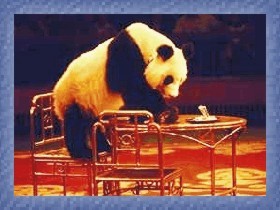 e.g. food desire,
sexual desire, small likings, dislikings, vanity, quarrels, love of praise, anger at blame, little wishes of all
kinds — and a numberless host of other things.
e.g. food desire,
sexual desire, small likings, dislikings, vanity, quarrels, love of praise, anger at blame, little wishes of all
kinds — and a numberless host of other things.LOWER VITAL
Is occupied with small desires and feelings, such as make the greater part of
daily life, e.g. food desire,
sexual desire, small likings, dislikings, vanity, quarrels, love of praise, anger at blame, little wishes of all
kinds — and a numberless host of other things.
e.g. food desire,
sexual desire, small likings, dislikings, vanity, quarrels, love of praise, anger at blame, little wishes of all
kinds — and a numberless host of other things.
It was inevitable that in the course of the sadhana these inferior parts of the nature should be brought forward in order that like the rest of the being they may make the crucial choice and either accept or refuse transformation. My whole work depends upon this movement; it is the decisive ordeal of this yoga. For the physical consciousness and the material life cannot change if this does not change. Nothing that may have been done before, no inner illumination, experience, power or Ananda is of any eventual value, if this is not done. If the little external personality is to persist in retaining its obscure and limited, its petty and ignoble, its selfish and false and stupid human consciousness, this amounts to a flat negation of the work and the sadhana. I have no intention of giving my sanction to a new edition of the old fiasco, a partial and transient spiritual opening within with no true and radical change in the law of the external nature. If, then, any sadhak refuses in practice to admit this change or if he refuses even to admit the necessity for any change of his lower vital being and his habitual external personality, I am entitled to conclude that, whatever his professions, he has not accepted either myself or my yoga.
The difficulty in the lower vital being is that it is still wedded to its old self and in revolt against the Light; it has not only not surrendered either to a greater Truth or to myself and the Mother, but it has up to now no such will and hardly any idea even of what true surrender is. When the lower vital assumes this attitude it takes its stand upon a constant affirmation of the old personality and the past forms of the lower nature. Every time they are discouraged, it supports and brings them back and asserts its right to freedom, — the freedom to affirm and follow its own crude and egoistic ideas, desires, fancies, impulses or convenience whenever it chooses. It claims secretly or in so many words the right to follow its nature, — its human unregenerate nature, the right to be itself, — its natural original unchanged self with all the falsehood, ignorance and incoherence proper to this part of the being. And it claims or, if it does not claim in theory, it asserts in practice the right to express all this impure and inferior stuff in speech and act and behaviour. It defends, glosses over, paints in specious colours and tries to prolong indefinitely the past habitual ways of thinking, speaking and feeling and to eternise what is distorted and misformed in the character.
Most people live in the vital. That means that they live in their desires, sensations, emotional feelings, vital imaginations and see and experience and judge everything from that point of view. It is the vital that moves them, the mind being at its service, not its master. In yoga also many people do sadhana from that plane and their experience is full of vital visions, formations, experiences of all kinds... It is only the minority of men who live in the mind or in the psychic or try to live in the spiritual plane.
Absorbed they lived in the passion of the scene,
But knew not who they were and or why they lived:
Life had for them no aim save Nature's joy
And the stimulus and delight of outer things.